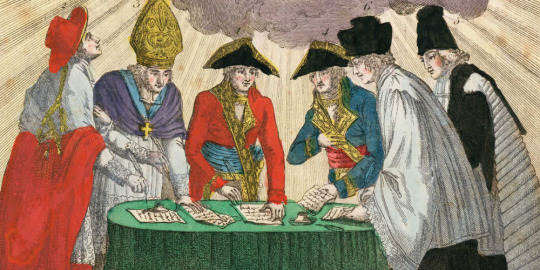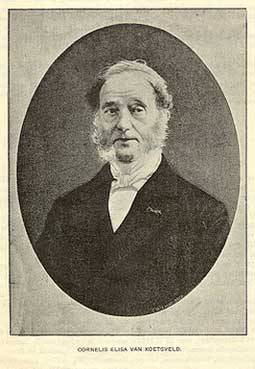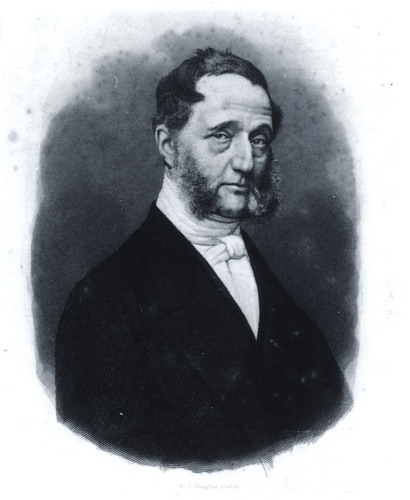#Catholic church reforms
Explore tagged Tumblr posts
Text
Pope Francis shows intent to stay in office by signing off on three-year reform plan - The Times of India
Pope Francis has approved a three-year extension to the Catholic Church’s reform process, showing his determination to continue leading despite spending a month in hospital battling pneumonia. The Vatican announced that the 88-year-old pontiff signed off on the decision from Rome’s Gemelli hospital, where he has been receiving treatment since February 14.“On 11 March, the Holy Father definitively…
#Catholic Church reforms#church governance and inclusion#hospitalization of Pope Francis#ordaining women as deacons#pope francis#Vatican assembly 2028
0 notes
Text
protestants the entire month of october:

#life's like this#protestant#martin luther#reformation#lowkey looking forward to my church's reformation celebration this year#can i get a heck yeah for corporate singing being able to take communion and bibles in the common tongue#@my catholic moots sorry but you'll have to endure this for the next few weeks
258 notes
·
View notes
Text
I've said it before and I'll say it again.
I think it's a dang shame that we'll put celebration of the day the church split over the day the church was formed.
It's not that I think what the Catholic Church was doing at the time that instigated the Reformation was good or in no need of correction, but rather that God's church was split and created factions upon factions where we now squabble with each other. We went from a united church to one with many denominations that fight with each other about which ones are the "true" ones, or which denominations are "wrong."
Don't get me wrong, I like being Nazarene. I like what the Nazarene church offers, and I agree with Nazarene theology. And it wouldn't be possible without the Reformation. I don't agree with Catholic theology. I think there are many things where they are off base. But there are still those in the Catholic church who are Christian, and I'm not going to write them off because of the Protestant/Catholic chasm.
The Reformation was necessary. I'm not sure it was necessary to celebrate. The Church split. It split. The Church, where Jesus said that the world would know us by the love we have for each other, split.
To put it another way: God's family split. How is that not heartbreaking? I am under no delusion that everyone was working in harmony previously, but still . . . .
When Martin Luther nailed the 95 theses up, his goal was not to split the church. It was to correct the church. But he had lobbed a hand grenade at a festering rot, gone too far deep to accept correction and instead desired to keep its corruption.
There's a lesson in the Reformation. There was good in the Reformation. I do believe God worked in the Reformation. But I feel like the lesson and warning of the Reformation is lost when we celebrate "no longer being Catholic!"
The Reformation should be sobering.
And if we are going to celebrate a formation of the church, why are we putting so much stock on the Reformation, and ignoring the Pentecost, where God came down again?
What is the purpose in celebrating the Reformation, and what is the excuse in forgetting Pentecost?
#catholic means universal#when we split we stopped being the universal church#and it's not that I'm rating enthusiasm for a holiday based on how many posts someone makes about it#but I do think it's telling that this year boasted only a handful of posts regarding Pentecost#in comparison to the flood I'm getting regarding the Reformation#I don't think I'm fool enough to believe no one's posting about Pentecost because they're out having a grand old time celebrating offline#I think we're missing the plot#christianity
62 notes
·
View notes
Text
you all need to know I had nothing to do with the pope
#.bullshit ( ooc )#As I said to rose: pope down!#I have a very very vested hate for the Catholic Church and while I don’t wish death on anyone every time a pope dies I do hope it’s#Harder to elect a new one and the papacy implodes on itself#Like my family was force converted and then my fathers family was a family of divorce so they threw him out#I hope that reform continues to happen and I hope they continue to uncover the dirty laundry because there is so much of it - SO much#I could talk for days about the Baltimore archdiocese and how garbage it is alas - hotel hell for me#A reminder I am from a mixed faith house reverted and took a modern orthodox conversion and then picked a less stringent methodology
26 notes
·
View notes
Text
'you could just leave the jedi'
ah yes, because leaving all you've ever know with no external support network is so easy (heavy sarcasm on that one)
'the jedi weren't government agents, they were just peacekeepers uwu'
now (@padmestrilogy may want to help me out with this one) but the jedi is absolutely nothing like the UN (like. tf). carrying out the will of a government like being generals in that government's army? you're an agent of government.
anyway staunch pro jedi fans learn how to read stories within their broader societal context and between the lines and not take everything on screen or, god forbid, said by george lucas as absolute gospel, okay?
#the jedi are compeltely different to the UN#and the medieval catholic church is a terrible example if you're trying to make the jedi order seem pure#do you know how fucked up it was? ever heard of idk the crusades or the reformation? smh#pro jedi fans dni#jedi critical#star wars
28 notes
·
View notes
Text
also to be clear if ur reading my silly catholicism fanfic it's very important to me that enjy isn't doing progressive catholicism or whatever bc to me that would so miss the point of 1) his character and 2) the issues i actually take with christianity
#it's such a fanfic about catholics written by jews.#and for me at least it comes from such a place of so much respect for catholicism and also being so deeply against it in certain ways#all this is to say that the one other priest enjolras fic on ao3 is so bad guys it's so bad. why is he trying to reform the church.#txt
10 notes
·
View notes
Text
Writers with a more historic Protestant perspective have generally translated the Greek word charis as "grace" and understood it to refer to the idea that there is a lack of human effort in salvation because God is the controlling factor. Proponents of the New Perspective argue that "favor" is a better translation, as the word refers normally to "doing a favor". In ancient societies there was the expectation that such favors be repaid, and this semi-formal system of favors acted like loans. Gift giving corresponded with the expectation of reciprocity. Therefore, it is argued that when Paul speaks of how God did us a "favor" by sending Jesus, he is saying that God took the initiative, but is not implying a lack of human effort in salvation, and is in fact implying that Christians have an obligation to repay the favor God has done for them. [...] "charis" as "favor" [does] not teach that Christians earn their way to heaven outside of the death of Christ. Forgiveness of sins through the blood of Christ is still necessary to salvation. But, that forgiveness demands effort on the part of the individual (cf. Paul in Phil. 3:12–16).
#christianity#bible#jesus#something to meditate on#faith in jesus#bible scripture#keep the faith#faith#jesus christ#christian#catholicism#protestantism#catholic#catholic church#reformed#presbyterian#lutheran#messiah#martin luther
25 notes
·
View notes
Text
That line where king alistair tells Hawke that even tho he’s a KING his support would not do much to elect Hawke as viscount if they don’t have Templar support is fucking insane to me
#the fact that Theda’s is truly letting the church have more power#than the actual powers like the crown the nobility etc#is INSANEEEE#bc the church will always be way more self serving than anything ever#this is why it’s insane to me that there has not been a Protestant reform in the chantry#bc some of the reasons that there were the reform#was not only dissatisfaction with how the Catholic Church was operating#but also money. there’s a reason so many of the protest fairj at the time revolved around#being allowed to keep money
11 notes
·
View notes
Text
In Canada in 2015, 1 in 50 deaths were caused by assisted suicide. By 2020, that rate had doubled - *doubled*, to 1 in 25. If we accept that you can only 'know' about 150 people at once, then that would mean each person would know 6 people who died by assisted suicide.
Faced with these numbers, are we actually expected to believe that before Canada legalised assisted suicide, there were really that many people who were in such intolerable and untreatable pain that they were just itching to die early? I doubt it. I think it's more likely that where assisted suicide is legalised, attitudes towards suicide and the sanctity of life change for the worse.
This is why I object to the term 'assisted dying', which I regard as an insidious euphemism. This issue is not separable from the problem of suicide more broadly in society. The rates of suicide in the Netherlands have only increased since that country legalised assisted suicide, compare 8.3 suicides per 100,000 deaths in 2007 with 11.3 per 100,000 in 2017. The 'sanctity of life' argument is not just religionese, it's backed up by the facts.
Opponents of assisted suicide, like myself, talk about Canada and the Netherlands and Belgium so much that even I think we begin to sound like a broken record, but I think this is warranted. These countries are only the most extreme examples, but out of the 19 countries which have legalised assisted suicide, nearly all of them have expanded the eligibility criteria beyond the supposdely robust raft of safeguards originally promised.
Are we really so naïve as to think that it can't possibly happen here? This is a country which voted to leave the EU, after all. Given what's at stake, I don't for a moment trust us to get this right.
#assisted dying#assistedsuicide#uk#uk law#parliament#labour#conservative#lib dems#reform#uk politics#politics#pro life#pro choice#church of england#anglican#anglicanism#catholic#catholicism#church#britain#law#medicine#dignity
11 notes
·
View notes
Text
Something in 40k which I find interesting, very funny, and also both realistic but a really weird worlbuilding choice for a setting that is meant to be at least somewhat satirical is that the Imperial Cult of the Imperium of Man is in many ways more tolerant of heterodoxy than the real world Catholic Church
#40k#warhammer 40k#imperial cult#imperial creed#ecclesiarchy#this is mainly only on paper#but you also see it in practice#the only non-negotiable requirements to be in line with the imperial creed are following three basic rules#monotheistic emperor worship#human supremacism#and obedience to the state#other than that what you can and cannot get away with largely depends on what mood your local religious leader is in#missionaries generally find it easier to just syncretise the god emperor and is saints with local gods#and dissuade traditons like cannibalism by replacing them with things like ritual consumption of totemic animals#meanwhile irl the catholic church loses their shit over folk saints#of course 40k priests can and will declare something heresy if they think its convenient#also another funny thing is that sebastian thor in many ways did something that martin luthor failed to#reform the church without triggering a schism
22 notes
·
View notes
Text
And then Mary made her only serious-her fatal-error: she died on 17 November 1558. Reformation monarchs timed their deaths very badly. Henry VIII died when those who most nearly shared his religious views were in disgrace, and when Protestants and politiques controlled Council and Court. Edward VI died when his commissioners were pillaging churches and provoking nostalgia for Catholic ways. Mary died when the political and diplomatic situations made it certain her sister would be queen, and safe for Elizabeth to restore Edwardian Protestantism.
Mary had continued to hope for a child who would succeed her, and had made no other provision.
In 1558 the most plausible Catholic candidate for the throne, Mary Stuart, was disqualified: as queen of Scots and wife of the French dauphin, she warred with England twice over, and Philip could not have permitted a French pawn to take the English crown. At the last, Mary Tudor reluctantly recognized Elizabeth's claim, as their father had determined: there was no realistic alternative, when the realm was at war and a disputed succession unthinkable. Elizabeth Tudor would be queen, and she would be a Protestant queen.
-English Reformations Religion, Politics, and Society under the Tudors by Christopher Haigh
#mary i of england#mary tudor#mary i#house of tudor#good queen mary#elizabeth tudor#henry viii#edward vi#mary stuart#marian england#marian church#protestant reformation#catholic restoration
5 notes
·
View notes
Text
keeping up w the conclv out of vague worry about the geopolitical impact of the catholic and then getting conspiratorially paranoid that it's an american
#txt#the delusional thinking in me is like “vance kills pope -> new pope is american = we are cooked??”#to be clear idek what i pictured as a “good” outcome here.#im not liking brimming with optimism for the reform of the catholic church lol#but. you know. i would like it to maybe not get worse?
6 notes
·
View notes
Text
Political gains & contents of the Concordat of 1801

Agreement between Napoleon Bonaparte and Pope Pius VII on 15 July 1801 in Paris.
Rome seems to have made immense sacrifices. The first advantage won by the First Consul was to seal, by the very act of signing an agreement, the recognition of the French Republic by the Holy See, and hence the rupture of the traditional alliance between Rome and the legitimate monarchies. It was a disastrous blow to French royalism in exile, for it freed the faithful in the interior from scruples about the regime of the Year VIII.
The second advantage was to confirm a church of salaried public servants, amenable to the State and having mainly sociological functions. Here we see a continuation of the Gallican tradition, but also of the thought of philosophes who had urged both the submission of the clergy to the State and its integration within it. The refusal to reestablish the religious orders meant also the rejection of any ecclesiastical life that might escape the authority of the bishops. Even the cathedral chapters were reduced to decorative functions.
Thirdly, no question was raised about the sale of the former Church properties, a matter of great importance for strengthening the prestige of Bonaparte in the eyes of the property-owning segments of French society.
Pius VII, for his part, failed to obtain the recognition of Catholicism as the state religion. He agreed to use his authority for what Consalvi called “the massacre of a whole episcopate,” by requiring the resignation of all French bishops, both constitutional and refractory, since Napoleon judged such a step to be indispensable for effacing all traces of the revolutionary schism. It is right to see in this operation an encouragement to ultramontanism, for it affirmed the powers of the Pope over the French Church. But it also encouraged a tendency in the French episcopate, that is, a whole ecclesiological movement for appeal to an ecumenical council in matters of discipline.
Among the numerous provisions of the Articles we may point out those that legalized all forms of worship in France, and those that strictly subordinated the lower clergy to the bishops (“prefects in violet robes”): only a fifth of the parish priests received the title of curé, and with it secure tenure; all others became simple desservants of succursales, that is assistant pastors.
This is what the Church got out of the deal:
What then did the Pope gain in this Concordat, “more likely to raise difficulties than to solve them” (Bernard Plongeron). Maintenance of the unity of the Roman Church, which a consolidation of the schism in France might have ruined forever; recognition of canonical investiture, which allowed the Pope to overcome the zelanti among the cardinals who opposed the Concordat but favored a reinforcement of spiritual authority; and resumption of regular pastoral life in France, where the new administrative and social status of the priest encouraged a growing number of ordinations, which reached several hundred by the end of the Empire.
Pius VII in any case remained attached to the results accomplished, a fact that deprived the small “shadow church” opposed to the Concordat of the possibility of resistance. His continuing attitude was shown later in his willingness to come to Paris for the Emperor’s coronation.
Source: Louis Bergeron, L'Episode napoléonien. Aspects, intérieurs: 1799-1815
English: France Under Napoleon, tr. R. R. Palmer
#Louis Bergeron#Bergeron#napoleon#napoleonic era#napoleonic#napoleon bonaparte#first french empire#french empire#L'Episode napoléonien. Aspects intérieurs: 1799-1815#France Under Napoleon#Napoleon’s reforms#reforms#Concordat#christianity#Christian#19th century#histriy#Catholic Church#Catholic#history#1800s#french revolution#Pope Pius VII#Pius VII#napoleonic reforms
29 notes
·
View notes
Text
Thinking about doing a series of guessing game-style polls in October where I post a quote every day and people guess on whether the quote comes from a Catholic or a Protestant theologian.
#debating whether i would divide pre-trent and post-trent catholics or if this would be a No Nuance scenario#because to me (looking at church history as a protestant and a medievalist) that distinction does indeed matter#but i think only having two options is funnier#specifically thinking october because of allhallowtide and reformation day#live from the scriptorium
14 notes
·
View notes
Text

THE APOCALYPSE SLUMBERS.
IT'S ABOUT TO WAKE UP.
FALL FROM GRACE ✦ DISCORD
✦ Branching off from a wildly popular roleplay site founded in 2008 — Warrior Cat Clans 2 — Fall From Grace takes place in a dark, twisting world torn apart by raptures and ancient curses. Tyranny, fear, mania, devotion, queenship, war — the land is pockmarked with it. There are four groups, each with their own distinct territories and cultures that are still being crafted: OakClan, upon razed fields, fanatically religious and violently holy; RowanClan, at the foot of torturous mountains, steeped in bloody, stone circle paganism and led by a High Mother and Father; WillowClan, among icy sea mists, of drowned cities and myth; and the Yew Eaters, a shadowy group more wraiths and fearful, whispered kit tales than reality… Or are they?
✦ Brand new jcink site! Est. January 2025.
✦ 16+ and rich themes.
✦ Adult-run.
✦ Friendly and enthusiastic staff ♡
✦ Violence permitted.
✦ LGBTQIA+ positive.
✦ Overarching plot.
✦ Seeking high ranks and users willing to create new group cultures. Freedom with regards to custom ranks and concepts.
✦Pre-established family trees and characters with complex dynamics and histories spanning years and generations.
Come join in and craft your dynasty, sanctuary or empire.
˚ ✦ . . ˚ . . ✦ ˚ . ★⋆.
. ˚ ✭ * ✦ . . ✦ ˚ ˚ .˚ ✭ . . ˚ . ✦
#warrior cats rp#warriors rp#warrior cats#warriors#wc#fuck it posting to my old beloved 1917 blog teehee <33#sunglasses emoji#im so hot when im talking about warrior cats at 26 x#come join it's gonna be so fun#rowanclan is gonna become like the catholic church with an oppressive patriarchal culture and the curia#and oakclan is gonna be the reformation wanting to destroy them hehe#it's all so hot ive been rping these characters since 2019 i love them#<33333#also we say 16+ but we wont be TOO comfortable talking if you're under 18#but minors are obviously welcome to rp and talk among themselves <3333#MUCH LOVE
3 notes
·
View notes
Text
it's been a good few days since we made our (re)acquaintance with our good professor dr. van helsing, which means im going to do what i promised to do literal months ago and present my historical faceclaim: dutch reformed church minister (dominee) cornelis eliza van koetsveld (1807-1893):


one of the most well-known ministers of his era, he started out as a simple village preacher and ended up as court minister - he even baptised queen wilhelmina of the netherlands (1880-1962). he was also, like many dutch reformed ministers in the 19th century, a fairly popular author. it was relatively common for dutch ministers to write fictionalised accounts of their experiences, especially in the countryside, about the people and their habits, the day-to-day occurences, their own efforts to teach and guide their flock correctly and the difficulties they encountered. such accounts usually included some kind of social commentary (van koetsveld's later work was inspired by dickens) and moral lessons for the readers as well. van koetsveld's most popular book can be found here, though it is of course in dutch.
so why van koetsveld? going off his looks alone, when i saw his picture for the first time, i was struck by how in almost every single one of his portraits, he looks kind and caring and yet - there is something mischievous about him, like he's in on some joke or a little piece of knowledge that you, the onlooker, have not yet been made aware of. he looks like a knowledgeable elderly man who also knows how to have little fun - which, to me? is van helsing to a t. and it's not just in his face: his written work exudes the authoritativeness of the 19th century preacher but is full of witty comments and sharp wisecracks that still make me chuckle when i read them.
there is also something else that endears him to me, and that makes me think he's a good fit for van helsing: van koetsveld founded the first dutch school for special education of what we now know to be neurodivergent children, the 'hague idiot school' (1855-1920). the name of his institute doesn't translate particularly well to modern times, but it is important to view this in context: the children who attended this school were generally thought to be feeble-minded and therefore incapable of development, but van koetsveld disagreed with that sentiment. now i don't think van koetsveld would've believed vampires to be anything else but a baseless countryside myth, but his views on neurodivergent children show a certain open-mindedness, to think differently from other people, that is a core trait of van helsing too. (somewhat in that vein, for anyone interested, when the time comes, ill make a post on his conduct towards renfield)
tl;dr, when looking at his pictures i can easily imagine him doing any of the things we see van helsing do in the books: teasing seward, maintaining his gentle but firm bedside manner around his patients, getting up to the various nighttime shenanigans from the next few weeks, and van koetsveld's real-life temperament, as far as can be established, seems to collide quite well with the character of van helsing.
#it doesn't look like cornelis was a ginger but well you can't have everything#i've linked his wiki page but unfortunately it's only available in dutch and german so give deepl a spin i guess#most of the information on that page i just ripped off and (re)wrote here tho#anyway! i wish i could've met this man irl i think i would have liked him#do i agree with everything he says. no ofc not he was a 19th c. minister. but he is definitely one of my obscure historical special guys#dracula#dracula daily#also trying to find the right english equivalent for terms in the dutch reformed church is terrible#half the time the english term is used in the anglican church but the same word directly translated to dutch is a catholic term#so i tried to avoid them here as much of them as possible
27 notes
·
View notes